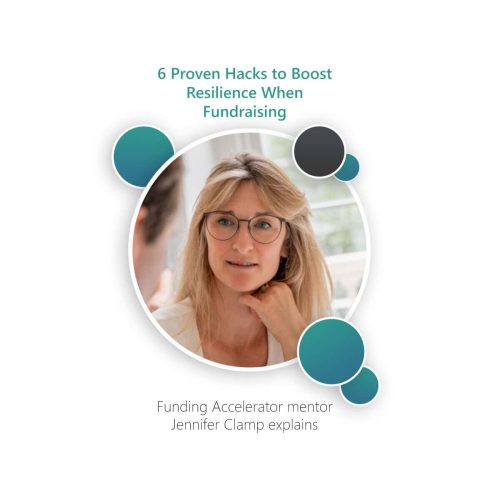Being a solo founder can feel like juggling ten different roles at once because, let’s be honest, you probably are. From product development to marketing, customer support, and more, there’s always something that needs your attention. The good news? You don’t have to do it all by yourself.
By building a fractional team, you can scale smarter, access skills you yourself don’t have, keep your sanity intact – and do all this cost-effectively! And a key player in this strategy? Fractional teams. The secret weapon you didn’t even know you needed to keep things running smoothly without breaking the bank.
In this blog, we’ll break down how a fractional team can extend your resources as a solo founder to benefit your business.
What Exactly Is a Fractional Team?
A fractional team is essentially a group of professionals who work for you part-time or on a project basis, offering their expertise without the hefty price tag of full-time salaries. Unlike traditional hires, these specialists can come in and out of your business as you need them, helping you cover key areas like marketing, finance, operations, and more. Think of it as assembling a dream team without the full-time commitment.
For solo founders, this is a game-changer. You get access to the expertise and manpower needed to grow your business, but at a fraction of the cost (pun intended). This means your burn rate (the cash you spend in the business each month) stays lower, and your runway (the amount of time your business can operate before needing more cash) extends further.
Virtual Assistants: How They Free up a Solo Founder’s Time and become The Backbone of Your Fractional Team
One of the best ways to build a fractional team is by starting with virtual assistants (VA). They offer a cost-effective way to delegate routine tasks, free up your time, and let you focus on the big-picture stuff. Plus, you can find VAs with a range of skills, from admin and customer service to more technical roles like social media management or bookkeeping.
Why Virtual Assistants Are a Must-Have for Solo Founders
- Cost-Effective: Virtual assistants generally come with lower overheads compared to full-time employees. You don’t have to worry about office space, equipment, or benefits, which is perfect for keeping costs low to increase your runway.
- Flexible Hours: Whether you need someone for 5 hours a week or 30, you can scale their hours up or down depending on your workload and budget.
- Global Talent Pool: Thanks to remote working, you can tap into talent from around the world. You’re not limited to local hires, which means you can find someone with the perfect skills at a price that works for your business.
Tasks You Can Hand Off to a VA (So You Can Focus on Growth)
Virtual assistants can handle a surprisingly wide range of tasks. Here are just a few areas where a VA can step in and save you hours each week:
- Administrative Support: From managing your calendar and answering emails to data entry and document prep, these small tasks can pile up fast. A VA can take this off your plate, freeing you to focus on higher-value activities.
- Customer Support: Whether it’s handling customer inquiries, troubleshooting issues, or responding to social media messages, a VA can keep your customers happy while you concentrate on growth.
- Social Media Management: Posting consistently, engaging with followers, and tracking social media metrics can be time-consuming. A VA can handle your content calendar, respond to comments, and even run ads to boost your online presence.
- Bookkeeping: Stay on top of your finances by having a VA manage your invoices, reconcile accounts, and track expenses, ensuring you’re not scrambling to figure it all out at the end of the month.
- Research: Need help gathering market data or researching potential partners? A VA can do the groundwork, providing you with the insights you need to make informed decisions.
How Virtual Assistants Fit Into a Broader Fractional Team
While virtual assistants can take care of the day-to-day, your wider fractional team can include more specialised professionals like fractional Cheif Financial Officers (CFOs), Chief Marketing Officers (CMOs), or even IT developers. Each of these experts brings in high-level knowledge without the full-time commitment, helping you address strategic issues in your startup.
For example, a fractional CFO can help you manage your finances strategically, improving margins and profitability, or ensuring you’re allocating resources efficiently and planning for the future. Meanwhile, a fractional CMO could be responsible for developing your marketing strategy. A CMO can help you build strong go to market offers, improve positioning and messaging and even design nurture sequences or on-boarding processes. The key is to use your CMO strategically and then work with VAs to implement the campaigns. You want to build a team that shows you have the strategy covered without draining your resources.
How Building a Fractional Team Spreads Your Runway
So, how does all this extend your runway? Simply put, by utilising a fractional team and virtual assistants, you’re paying for expertise on an as-needed basis. This keeps your costs low, your output high, and ensures you’re only spending money on what really moves the needle for your business. You avoid the long-term financial commitment of full-time hires, meaning your cash lasts longer, giving you more time to hit your milestones before raising your next round of funding.
A Fractional Approach = Smart Scaling
As a solo founder, time is your most precious resource. Building a fractional team, with virtual assistants as a cornerstone, allows you to scale your business without the stress of full-time hiring. You get the flexibility to adapt quickly, manage your burn rate, and focus on what really matters, growing your business.
Ready to raise funding for your business? Book our free, online Funding Strategy Workshop to hear our insights into what it takes to raise equity investment in the current funding climate – and we’ll answer any questions you may have too.
- How to Find Investors (Without Losing Your Mind) - June 17, 2025
- How to Raise Money (Without Losing the Plot) - June 9, 2025
- How I Raised £250K – and Help Other Founders Scale with Equity Funding - June 9, 2025






















